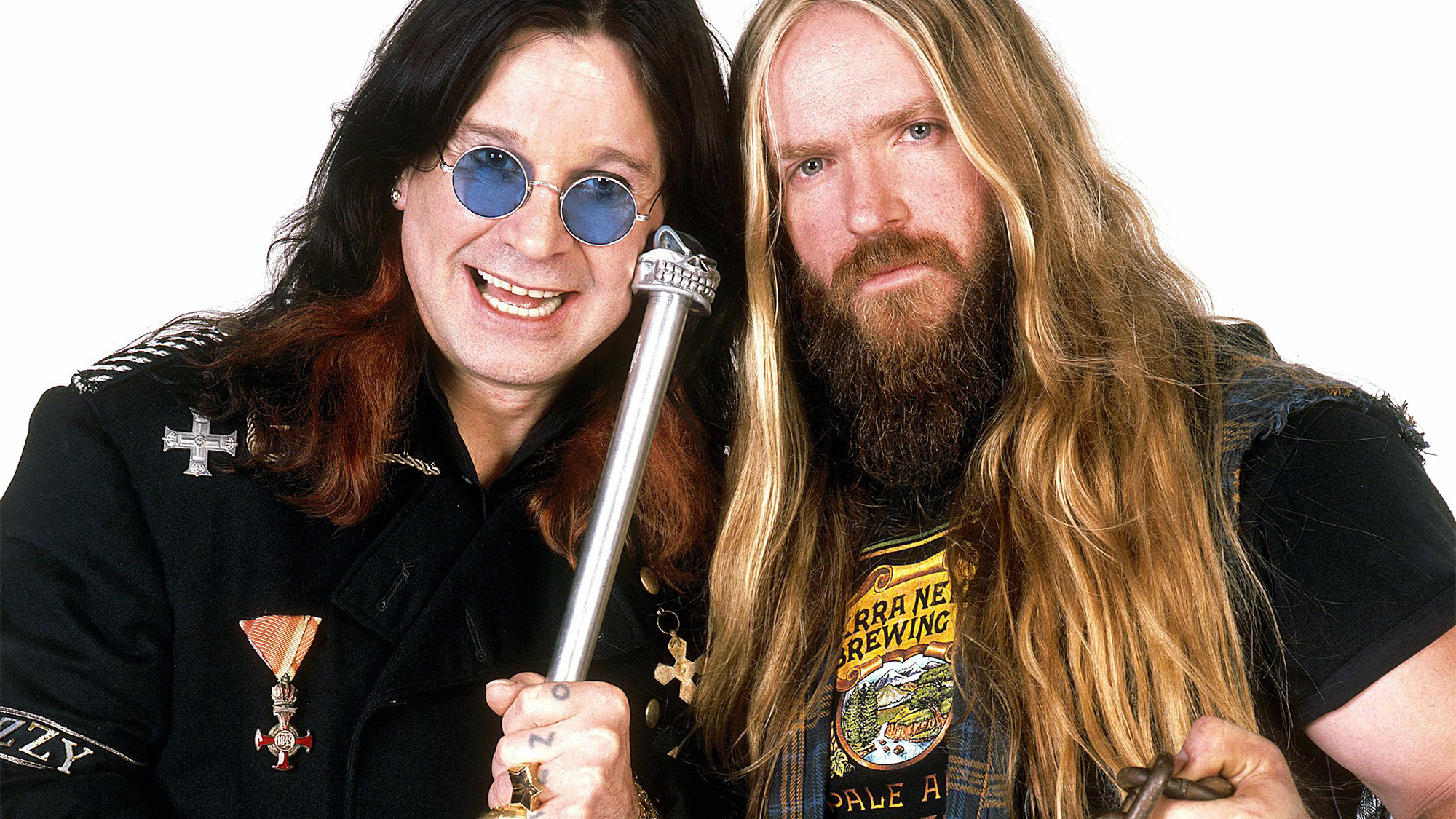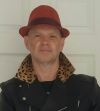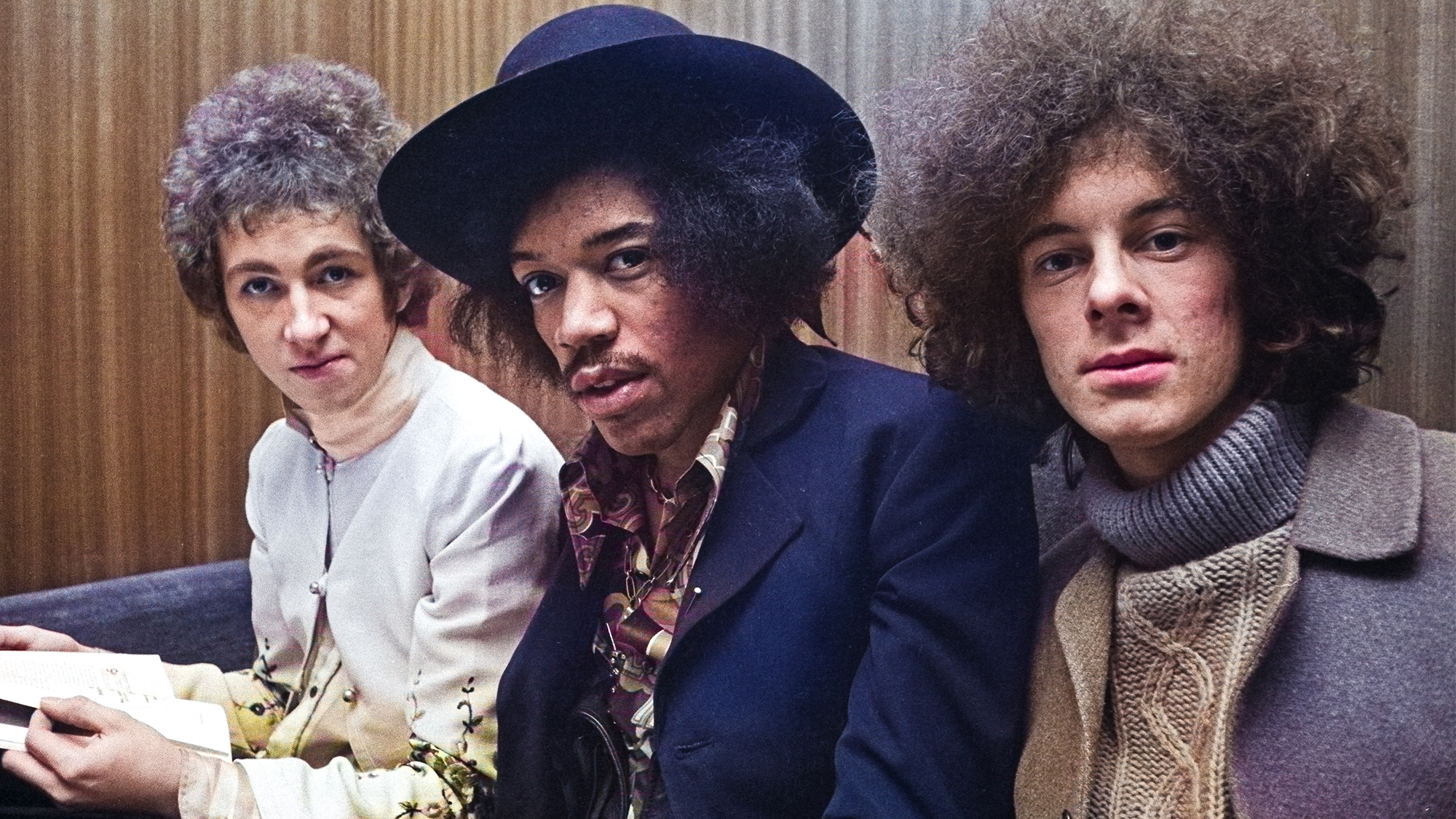“Ozzy took a look around and said, ‘You’re joking aren’t you?’ I said, ‘It’s a lot nicer on the inside.’ ” Zakk Wylde cracks us up with tales of Ozzy as he reveals the stories behind his greatest tracks
As Ozzy prepares for his last concert on July 5, Zakk delivers the inside scoop on key songs from his solo catalog

Zakk Wylde has always been a workaholic. Not content to operate with just one band, he’s combined numerous roles over the years, working intermittently as Ozzy Osbourne’s guitarist and co-writer while creating albums under his own name and the Black Label Society banner. He can also be found working on any number of projects, including Zakk Sabbath, Generation Axe (with fellow shred heroes Steve Vai and Yngwie Malmsteen) and Pantera, where he’s been re-creating the guitar parts of his late friend, Dimebag Darrell.
As of this writing, Pantera are preparing to head out on tour again in 2025 and will hit Scandinavia and Europe before landing in the states in May. “It’s been an honor to be up there playing my buddy’s stuff every night,” Wylde tells Guitar Player. “It’s great to see how much joy people get from hearing those songs again. It’s the power of music and by playing the music, it’s like the guys are still alive and well. I try to keep as faithful as possible to the original solos for nearly everything.”
Dime certainly came up with some notable riffs, and Wylde himself is no slouch when it comes to delivering killer lines. For Wylde though, the master of riff analysis was Ozzy Osbourne. “The funny thing with Ozz is that, when I played things like, say, ‘I Don’t Wanna Change the World,’ I was just messing around having a joke, riffing, singing crazy shit. But Ozzy heard something that clicked for him. When he picked up on the riff, I thought, Are you kidding? But he turned that into a Grammy-winning song.
“Oz has such an ability to hear what works and how to realize the spark that the riff created for him," he continues. "It’s a real gift that he has, and he’s been doing that since day one in Sabbath and with Randy Rhoads. I’d play riffs to Ozzy, and he’d instinctively say ‘Yeah, that’s good’ or ‘No, I’m not feeling that one.’ Same with his vocal lines. I’d say nine out of 10 times the first thing that he sings is the keeper. The first thing he comes up with is the melody, and his great gift is to be able to sing a countermelody over a riff.”
Guitar Player asked Zakk to share the five songs from his career that mean the most to him. Looking over his five selections, it's clear that there are a lot of reflective, sensitive moments, which doesn’t align with the clichéd view of Zakk as a modern-day Viking road warrior. For that matter, there’s a lot of subtlety in his playing, and a love of dynamics, with plenty of light and shade.

“Well I guess it’s a reflection of everything that I love about electric guitar," he offers. "As much as I like Zeppelin playing 'Black Dog' I also love 'Goin’ to California.' I’ve always enjoyed mellow stuff, and of course I really love Elton John, so there’s a lot of different influences in the mix.
"As well as that, it also depends on what instrument I’m writing a song on. If it’s the piano then I’m automatically in a more mellow place, and if it’s on acoustic guitar, I’m more likely to be thinking Neil Young or something.”
All the latest guitar news, interviews, lessons, reviews, deals and more, direct to your inbox!
In fact, when Wylde works on his playing, he goes to an unlikely source of inspiration. “I usually sit in the kitchen at night with the dogs when everybody’s sleeping, and maybe put on some Pat Martino, Joe Pass or Scott Henderson or something, and cop some of those ideas. Maybe try to take some of what Martino’s doing and fit it over something completely unrelated like ‘Red House’ or ‘Voodoo Chile’ rather than the bunch of crazy chord changes that he’s playing chromatics over.
“I think it’s cool to hear something then incorporate it with something that doesn’t seem at all connected. That’s the excitement of music though, creating amazing new meals with the same ingredients everyone else has, yet managing to find something that’s uniquely your own. That’s what it’s all about for me.”
“Miracle Man” (1988)
“I picked this one as it’s a track from the first Ozzy album that I played on, No Rest for the Wicked. I’m obviously aware of some of the great rhythm guitar parts that have been laid down in the past, like Jake E. Lee’s work on ‘Bark at the Moon’ and Randy Rhoads’ on ‘Crazy Train.’ Those songs are part of my education as a guitarist. If I’m learning covers, I’m going to nail those rhythm parts or else I’m not really playing the song.
“I felt like my job as Ozzy’s guitarist was to bring something that held all the elements of the song together the way those parts did. All the things I absorbed like a sponge found their way into my own playing. It’s not stealing or borrowing; it just becomes a part of your knowledge.
“For example, on 'Miracle Man,’ the fingering that I use comes from 'Foxey Lady,’ even though it bears no resemblance to it. And the 16th-notes rhythm guitar part was informed by my ability to play those rhythm lines from Randy and Jake. I’m pouring little elements of a whole bunch of things into the mix and coming up with something new that I probably wouldn’t have created if I hadn’t spent the time working out what those great players had done. It’s like a cocktail or a new dish — you use the ingredients that you have on hand to mix up something new that’s your own.”
“Mama I’m Coming Home” (1991)
“I picked this because it reminds me of the time that I wrote it with Oz for the No More Tears album. I had an apartment in North Hollywood, and I’d just bought a piano, which I still have and use. This song was actually written on the piano. I drove Ozzy over to my apartment; the area didn’t look great, the grass was 10 feet high, the shingles were hanging off, the paint had flaked off, there was a drug rehab place nearby, you know? The whole thing looked like a drug slum shithole. Ozzy took a look around and said, ‘You’re joking aren’t you?’ I said, ‘It’s a lot nicer on the inside.’ Ozzy just asked, ‘Sharon is paying you, isn’t she?’ [laughs]
“I guess the solo is a complete Joe Walsh vibe, what with my love of the Eagles and ‘Hotel California.’ That and the acoustic parts, which are an accumulation of everything I love, including the Stones and Keith, the Allman Brothers and Skynyrd. There’s a six and 12-string, and the intro parts are a steel-string Chet Atkins acoustic. It was a song that required a strong solo statement, rather than a whole bunch of notes, so my mindset was almost, ‘What would the Eagles do here?’ This was one song where we knew that we’d created something special when we’d finished it, and I guess that was borne out by how successful it was and how it’s remained a big song for fans of Ozzy’s work ever since.”
“Losin’ Your Mind” (1994)
“Pride & Glory was the band I put together when Oz decided to take a break. He said he was going to chill for a little bit, so if we got any offers, go ahead. It was kind of like moving out of your parents’ house or something. [laughs] The security, the roof over your head and the food on the table, you know? Now it was like I had to fend for myself in my own apartment.
“It was very exciting times, though, and Pride & Glory was a very different process from the Ozzy albums, with double-tracked guitars and a much bigger production. I used the same rig I played on ‘Miracle Man’ and ‘No More Tears,’ but the sound is so different. I remember when I put the banjo on it and I was listening back and thinking, Wow, that’s a little insane. [laughs]
“This song represents a distinct period of my life – maybe it’s my Cream phase – just a three-piece trio format. There’s something magical about the sound of one guitar, a bass and the drums. It lets the guitar bloom and find its own sonic space. Without a doubt there’s more than one way to do things and that’s the way I approach playing. Whatever works best at the moment you’re in is the way to go, regardless of rules and other peoples’ ideas.”
“Road Back Home” (1996)
“I wrote this for Book of Shadows, my first solo record The thing about this song is that it was one of my first attempts at writing lyrics, and I’d never thought of myself as someone who could write lyrics. I just saw myself as someone who played guitar and maybe a little piano; I was taking care of the music department. There’d never been any need for me to write lyrics prior to coming up with the words for this, which I’d had for quite some time before I recorded it, way before the Pride & Glory record. I realized that I didn’t have to feel limited in what I could do — that I could create the whole song from the ground up and also be able to express things that I couldn’t necessarily convey by playing the guitar. I finds that I’m often drawn to melancholy ideas and themes, which is something that’s apparent when you look at a lot of the songs I’ve written.”
“Stillborn” (2003)
“I’ll admit that there’s a bit of a Zep vibe about this song [from the Black Label Society album The Blessed Hellride]. When people say things like imagine what Hendrix could have done with everything that’s available these days, I always say that it would have probably been terrible, because the magic that he created was borne out of the necessity of what he had to work with and his genius in creating something spectacular. Same with Dark Side of the Moon: If they had today’s technology I’m sure it wouldn’t have been anywhere near as good, as they were creating things that didn’t exist.
“That’s how my mindset was when I came up with the riff for ‘Stillborn.’ You have to use your imagination to make something new with the same things that are available to you and everybody else. So I was thinking that I’d see what I could do if I limited myself to writing a song with just two parts. It forced me to be creative — I just wanted to try to write a song with one note. The idea was to have as little as possible to make a song and the whole thing just rolls on that F# note.
“To me, the genius behind ‘Smoke on the Water’ or ‘Whole Lotta Love’ is that there are actually only two parts to the songs, yet they are two of the greatest songs ever written. Not that I’m saying this is as good as those two songs.” [laughs]
Mark is a freelance writer with particular expertise in the fields of ‘70s glam, punk, rockabilly and classic ‘50s rock and roll. He sings and plays guitar in his own musical project, Star Studded Sham, which has been described as sounding like the hits of T. Rex and Slade as played by Johnny Thunders. He had several indie hits with his band, Private Sector and has worked with a host of UK punk luminaries. Mark also presents themed radio shows for Generating Steam Heat. He has just completed his first novel, The Bulletproof Truth, and is currently working on the sequel.





